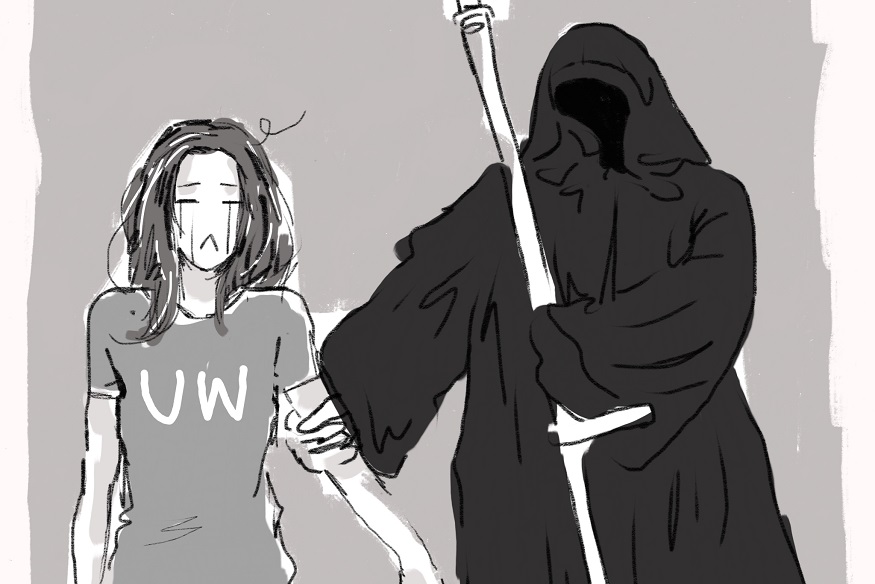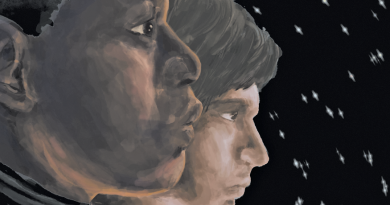Let’s Talk about the Bitter End(s)
College is an odd time to be thinking about death, especially if you’re quickly approaching your degree. Universities are sold to students like a new womb—places that we will hibernate, take in nutrients, and are reborn into the actual world when we have completed our development. When I came to school, I genuinely thought of college as a source of new life.
Sure, all of that is true to a degree. But more than that, college is a crash course in the brutal and bitter ends that riddle life. Out of curiosity, I tried to find out the number of college students who either die while enrolled in school or have somebody close to them die.
That would have been really fascinating information to have, if it wasn’t eternally lost somewhere in the sea of articles about college student suicides, alcohol poisonings, and drug overdoses.
In my desperate attempt to find some statistics, I typed “how many college students die” like a mad man into Google over and over, but I only received bleaker and bleaker results. At first, I wanted to ignore the correlation between substance and suicide, but it proved to be too hard.
I am a rather tame fellow, never having experimented with drugs really and only drinking modestly. But college kids are just into partying, right? It’s normal. Eight freshmen die within a week of the 2014 school year starting and that is just how things—wait, what?
Eight kids died in their first month of classes at various universities in September 2014 while under the influence of some substance. This is only more terrifying when you realize that it’s not particularly strange. The most dangerous time to be a college student is your first year.
According to responses on Twitter to the death of a freshman at Washington State University in fall of 2013, it is the victim’s own fault for “not being able to handle their [expletive deleted].” Interestingly enough, that expletive is not the one you would expect.
The fact that so many students, especially upperclassman, would respond in such a cold manner is telling of what one of the actual issues might be. Sure, excessive partying is dangerous, but it’s even more dangerous for freshman trying to keep up with the bunch of alcohol and drug abusing, angst fuelled nihilists that comprise the upper classes of the average American university.
Alright, I will admit that particular phrasing sounds accusatory. I do have to stick by it, however. Historically speaking, substance abuse and suicide rates don’t go up because people are partying too hard—they go up because folks are depressed.
Depression is a very serious issue that I am not even going to pretend to understand. But it does provide for me the connection between substance and suicide that I so desperately wanted to ignore. Comedian Michael Ian Black once pointed out that every year, we lose a great comedic mind to overdose or suicide, all because we don’t know how to talk about our feelings.
College students are depressed. Once again, I tried to research the numbers on this, but instead just found guides for parents on how to deal with this issue, along with confusing yet haunting graphs in which every line was on a downward spiral, and a disturbing amount of articles with the phrase “depressed and alone” in their titles.
This article was originally supposed to be about the experience of death as a college student. But I think it turned into something a little darker, because there is something more devious and vague than the grim reaper haunting college students.
We’re surrounded by ends in general— the end of our childhood, our educations, our loved ones, marriages, friendships, and you can fill in the rest with your own imagination or experiences. There is probably a solution, but I don’t know what it is. All I can suggest is regret for those who don’t survive and a cocktail of silent terror and genuine hopefulness for those of us who do.






